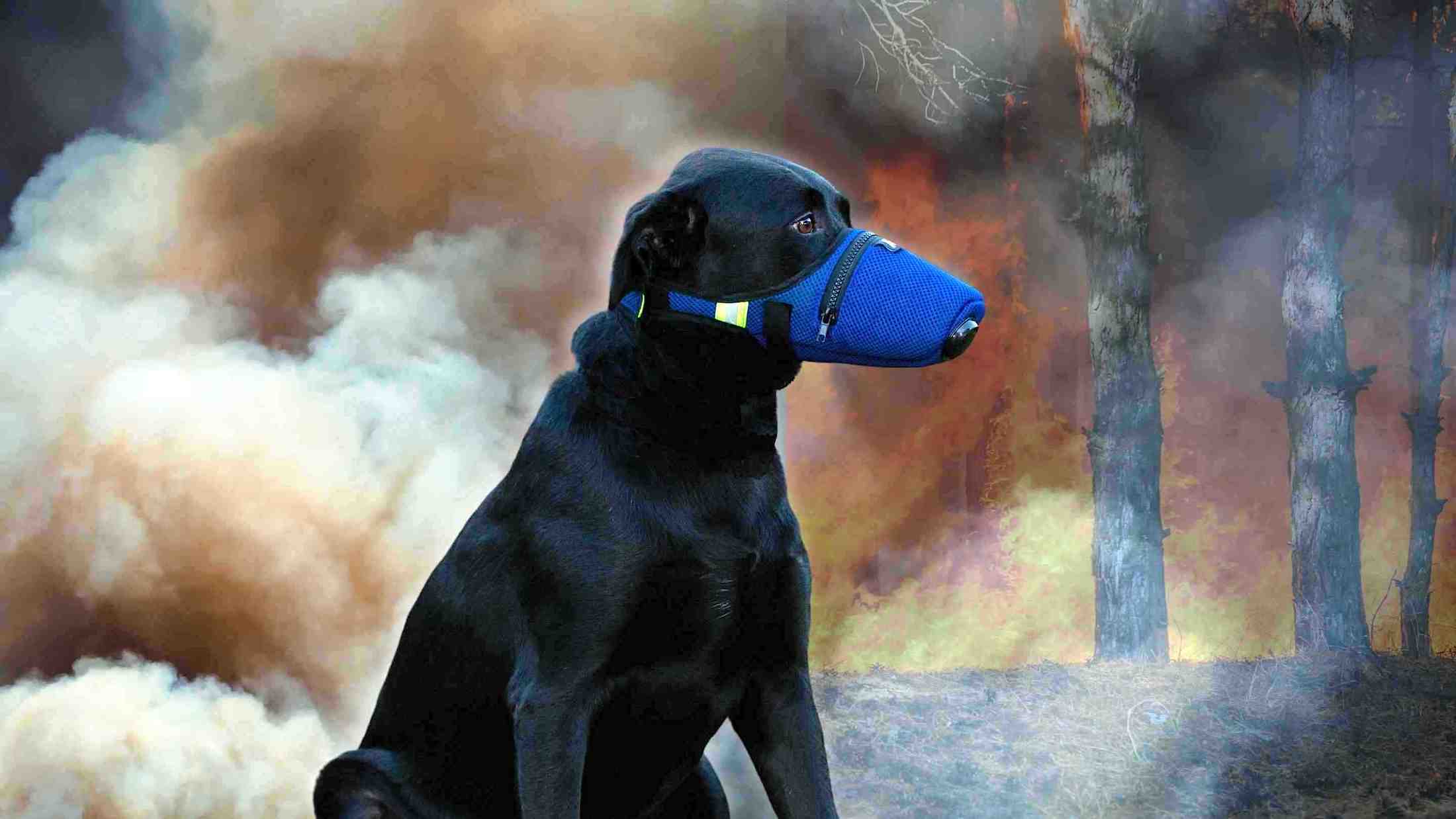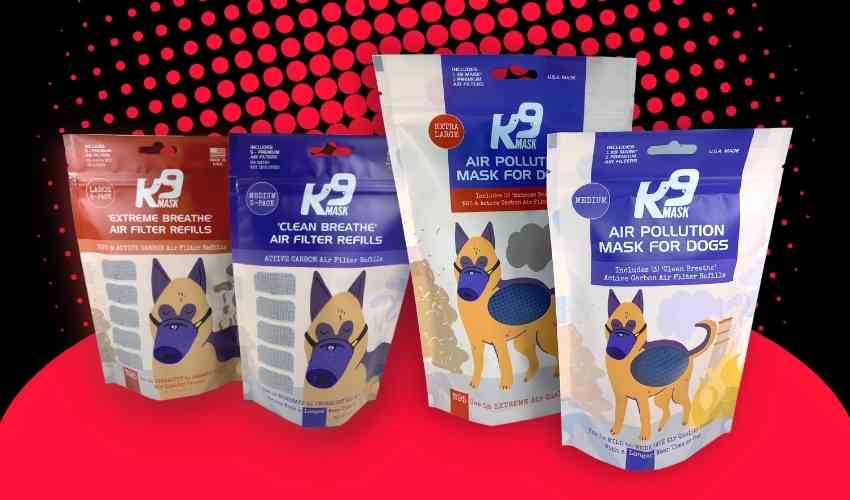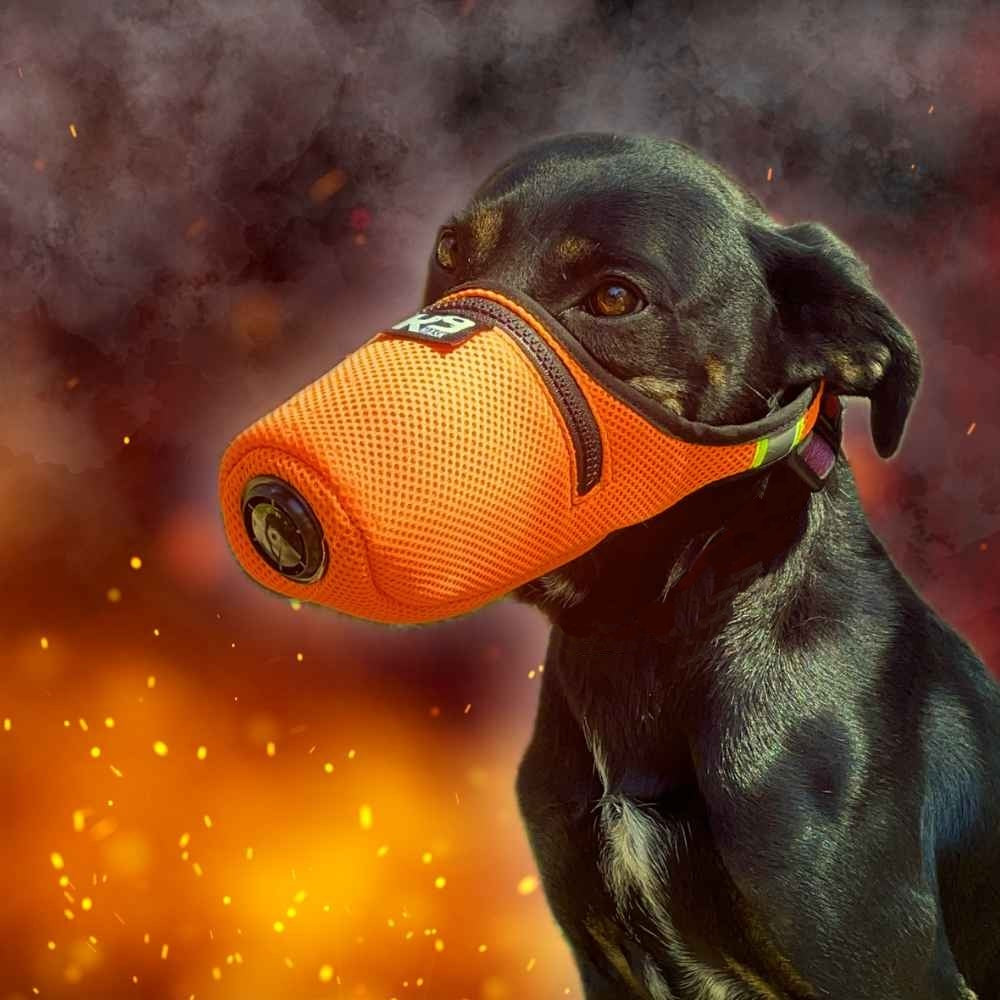When disaster strikes, it’s not only humans who step into danger zones to help. Service dogs—whether trained for search and rescue, military operations, medical response, or emotional support—often work on the front lines. These dogs serve as lifelines for people in need, but their missions can put them directly in harm’s way, especially when air quality is compromised.

The Hidden Dangers in the Air
In crisis zones, the air is rarely clean. Depending on the situation, service dogs may be exposed to:
• Wildfire smoke: Dense with PM2.5 and PM10 particles that persist at ground level.
• Dust and rubble: Earthquakes, building collapses, or explosions release silica, concrete dust, asbestos, and fibers.
• Volcanic ash: Microscopic, glass-like shards that irritate eyes and damage lung tissue.
• Chemical or industrial pollution: Urban disasters can involve toxic gases, tear gas, or solvent fumes.
Why Service Dogs Are More Vulnerable
Dogs breathe faster than humans and work closer to the ground, where particle concentrations are highest. In a smoky or dusty environment, a dog may inhale much more particulate matter than a handler in the same space. Unlike humans, dogs can’t cover their noses or choose to step away when the air becomes overwhelming.
Potential impacts include shortness of breath, wheezing, lung inflammation, reduced stamina, and in severe or repeated exposures, long-term respiratory damage.

Real-World Examples
• Search & rescue deployments: Dogs working in post-collapse environments face weeks of dust exposure that can irritate airways and reduce performance.
• Conflict zones: Military and security canines may encounter smoke, burning chemicals, or tear gas during operations.
• Wildfire responses: Canine teams assisting firefighters often operate during extended periods of hazardous AQI, especially near ground level where smoke settles.
How K9 Mask® Helps Extend Their Missions
K9 Mask® is designed to provide temporary respiratory protection for dogs during acute air-quality hazards. It is a mission-ready tool for short-duration use in dangerous conditions.
• Particle filtration: Helps reduce exposure to PM2.5, dust, and ash.
• Activated carbon layers: Help reduce exposure to smoke and certain nuisance odors.
• Fit and function: Adjustable design intended to stay secure during brief, critical tasks.
Important: Masks are for short-term, supervised use only. Always provide frequent breaks for cooling and hydration, monitor panting and behavior, and remove the mask immediately if signs of distress appear. Avoid prolonged use in heat.

Field Guidelines for Handlers
• Pre-mission acclimation: Introduce the mask gradually in low-stress environments so the dog associates it with work, not discomfort.
• Use by conditions: Deploy the mask when AQI is hazardous or when visible smoke, dust, or ash is present. Prefer clean-air staging areas when possible.
• Timed sessions: Keep wear intervals short. Schedule mask-off recovery periods with water and shade.
• Health checks: Watch for excessive panting, drooling, pawing at the face, disorientation, or reduced performance. Consult a veterinarian if symptoms persist.
• Aftercare: Rinse eyes with clean water if irritated, wipe the muzzle and face, brush out coat debris, and replace used filters promptly.
Supporting Our Four-Legged Heroes
Service dogs don’t choose the risks—they take them because we ask, and because their training and loyalty compel them to serve. Equipping them with the right protective tools is part of our duty of care. By reducing exposure to harmful particles and smoke during the most dangerous moments, we help them work effectively and recover faster.
Final takeaway: In wildfires, collapsed structures, volcanic events, or urban emergencies, protecting a service dog’s lungs protects the mission. For more details about K9 Mask® and filter options, visit K9Mask.com.












